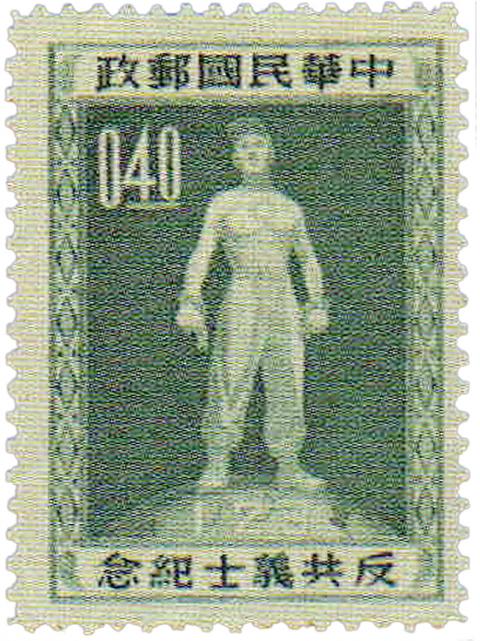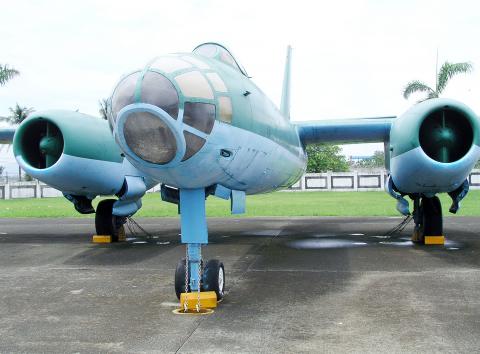Taiwan in Time: Nov. 9 to Nov. 15
It was supposed to be a routine air force bombing drill near Hangzhou, China, but Li Xianbin (李顯斌) had other plans.
Although the weather wasn’t ideal, the 28-year-old pilot of an Il-28 Soviet jet bomber had already decided that the morning of Nov. 11, 1965 would be a once-in-a-lifetime chance to execute his plan.

Photo courtesy of Wikimedia Commons
Without warning, Li turned his plane southward. His crewmates, Lian Baosheng (廉保生) and Li Caiwang (李才旺), realized what was going on and tried to stop their pilot, but it was too late.
They were headed toward Taiwan.
Although the Chinese Nationalist Party (KMT) rulers of Taiwan offered a reward for any Chinese soldiers who defected (as did China for Taiwan’s defectors), Li Xianbin insisted later that he didn’t do it for the money, but that he couldn’t take the “inhumane practices” of the Chinese Communist Party (CCP) any more.

Photo courtesy of Wikimedia Commons
It was later indicated that Li had clashed with his superiors over military promotion issues and was also upset with the CCP over the death of several of his relatives during a famine.
Between 1960 and 1989, about a dozen Chinese fighter planes successfully made the cross-strait “defection to freedom” (投奔自由), as the KMT called it in those days, while a lesser number of Taiwanese ones flew the other way in what their communist rivals called a “revolutionary return” (起義歸來). Each side ceased their reward policy as tensions eased in 1988.
Li flew the plane dangerously close to the water to avoid radar detection until he approached the military airport in Taoyuan. Due to the weather and unfamiliarity with the terrain, he couldn’t land properly and damaged the nose and front wheels of the plane.
The official account states that Lian died in the crash, but both Li Caiwang and Li Xianbin later claimed that Lian committed suicide because he didn’t want to come to Taiwan. Li Caiwang received an award of about NT$1.4 million, while Li Xianbin took home double that amount.
Since their arrival took place right before KMT cofounder Sun Yat-sen’s (孫逸仙) birthday celebration, the media touted them as the “best birthday present” and both took part in the festivities.
Both ended up serving in Taiwan’s air force, but neither were allowed to fly again, reportedly due to the KMT’s fear that they would bring military secrets back to China.
The KMT pronounced all three as anti-communist martyrs (反共義士), and portrayed them as heroes. They participated in various anti-communist propaganda activities and even made it into elementary school textbooks as freedom-seeking patriots. After the communists learned of Lian’s suicide years later, they made him a revolutionary martyr (革命烈士).
The Ministry of National Defense planned to utilize these defectors to persuade the communists to surrender, to serve as propaganda to the public and for possible espionage.
Li Caiwang retired in 1977 and emigrated to the US. In 1983, he returned to China, claiming to authorities that he was forced by Li Xianbin to defect and re-declared his loyalty to the CCP, denouncing his anti-communist martyr designation.
Li Xianbin followed a similar path, emigrating to Canada in 1990. On Dec. 16, 1991, he and his wife went to China to visit his ailing mother. He had had reportedly received repeated guarantees from China’s embassy that the 20-year statute of limitations had expired and he would not be arrested for his prior actions.
The visit went well, but as Li Xianbin was about to return to Canada, he was arrested and sentenced to 15 years in prison as a “defector and traitor.” Alas, a provision allows any crime punishable by death or life in prison to be prosecuted past the 20-year statute of limitations with the permission of the Supreme People’s Procuratorate, China’s top prosecuting body.
Li Xianbin was paroled in 2002 because of poor health, and died of cancer in Shanghai about six months later, in the very land that he had risked everything to escape from.
Taiwan in Time, a column about Taiwan’s history that is published every Sunday, spotlights important or interesting events around the nation that have anniversaries this week.

This is the year that the demographic crisis will begin to impact people’s lives. This will create pressures on treatment and hiring of foreigners. Regardless of whatever technological breakthroughs happen, the real value will come from digesting and productively applying existing technologies in new and creative ways. INTRODUCING BASIC SERVICES BREAKDOWNS At some point soon, we will begin to witness a breakdown in basic services. Initially, it will be limited and sporadic, but the frequency and newsworthiness of the incidents will only continue to accelerate dramatically in the coming years. Here in central Taiwan, many basic services are severely understaffed, and

Jan. 5 to Jan. 11 Of the more than 3,000km of sugar railway that once criss-crossed central and southern Taiwan, just 16.1km remain in operation today. By the time Dafydd Fell began photographing the network in earnest in 1994, it was already well past its heyday. The system had been significantly cut back, leaving behind abandoned stations, rusting rolling stock and crumbling facilities. This reduction continued during the five years of his documentation, adding urgency to his task. As passenger services had already ceased by then, Fell had to wait for the sugarcane harvest season each year, which typically ran from

It is a soulful folk song, filled with feeling and history: A love-stricken young man tells God about his hopes and dreams of happiness. Generations of Uighurs, the Turkic ethnic minority in China’s Xinjiang region, have played it at parties and weddings. But today, if they download it, play it or share it online, they risk ending up in prison. Besh pede, a popular Uighur folk ballad, is among dozens of Uighur-language songs that have been deemed “problematic” by Xinjiang authorities, according to a recording of a meeting held by police and other local officials in the historic city of Kashgar in

It’s a good thing that 2025 is over. Yes, I fully expect we will look back on the year with nostalgia, once we have experienced this year and 2027. Traditionally at New Years much discourse is devoted to discussing what happened the previous year. Let’s have a look at what didn’t happen. Many bad things did not happen. The People’s Republic of China (PRC) did not attack Taiwan. We didn’t have a massive, destructive earthquake or drought. We didn’t have a major human pandemic. No widespread unemployment or other destructive social events. Nothing serious was done about Taiwan’s swelling birth rate catastrophe.